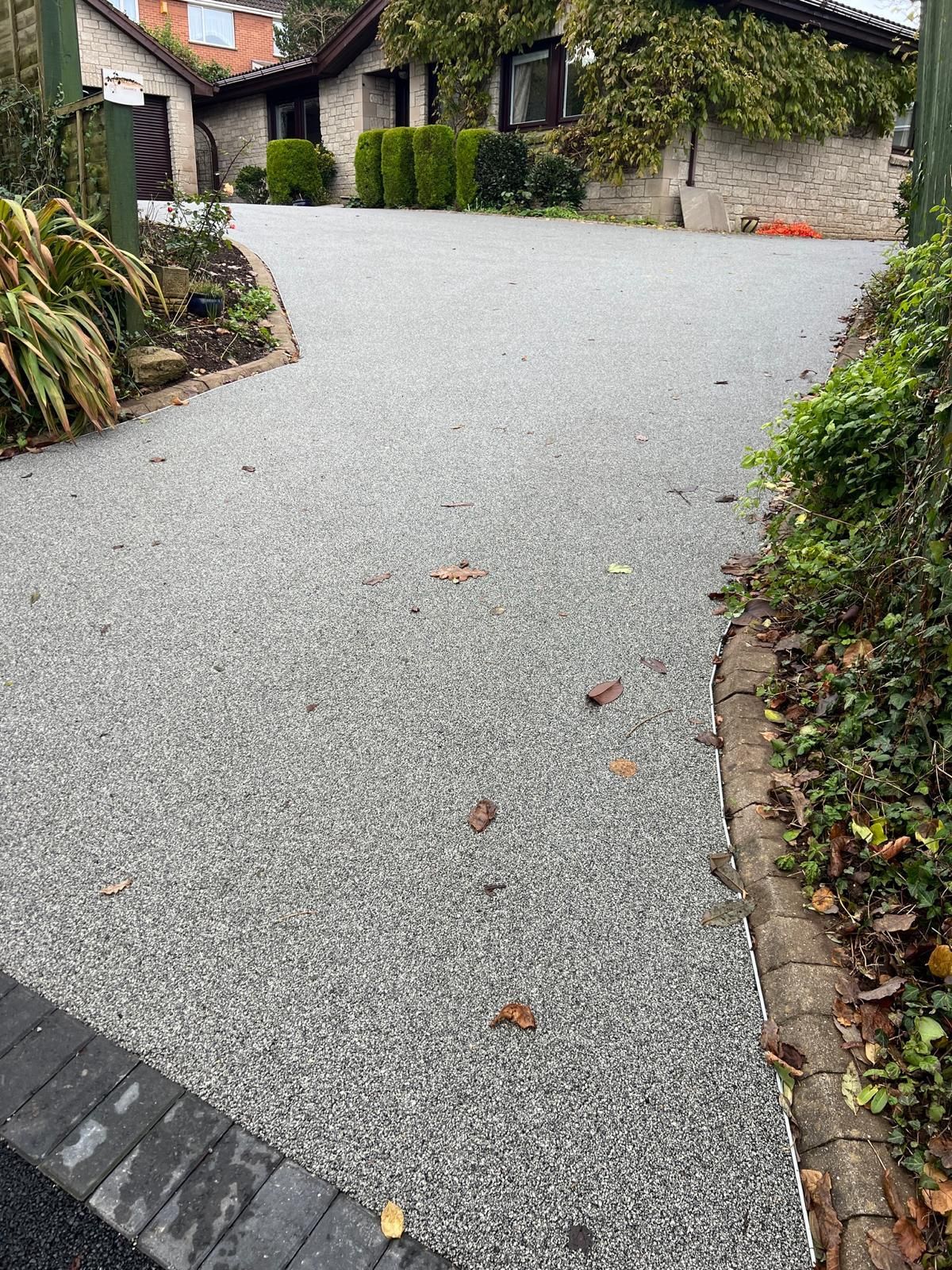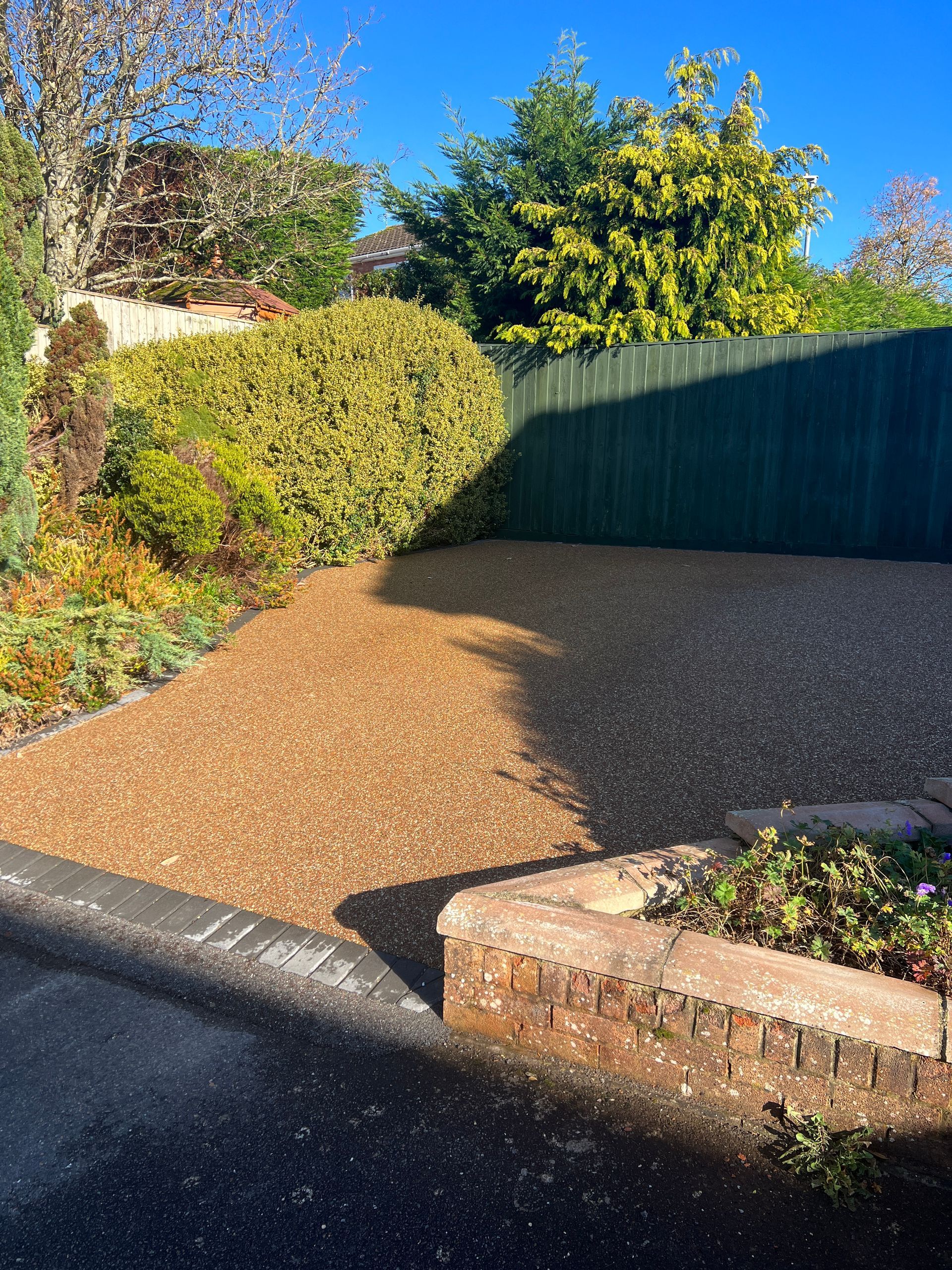Making the Most of Resin's Thermal Properties for Heat-Resistant Driveways
Optimising the Thermal Properties of Resin for Heat-Resistant Driveways

As global temperatures continue to rise, the need for innovative cooling solutions in urban environments has become increasingly urgent. Resin driveways have emerged as a groundbreaking approach to creating cool surfaces, offering a promising solution for hot climate regions. By leveraging the unique thermal properties of resin, these driveways are revolutionising how we think about outdoor comfort and energy efficiency.
Thermal Properties of Resin: The Science of Cool
The effectiveness of resin driveways in hot climates stems from their distinctive thermal characteristics. Unlike traditional materials that readily absorb and retain heat, resin can be engineered to have specific heat-handling properties. These properties allow resin surfaces to reflect more solar radiation, absorb less heat, and dissipate accumulated heat more efficiently. The result is a cooler surface that improves
thermal comfort in outdoor environments.
Heat-Resistant Driveways: Durability Meets Comfort
Using resin technology, the development of
heat-resistant driveways has been a game-changer in outdoor surfaces. These advanced materials provide excellent cooling properties and maintain their structural integrity and appearance under high heat conditions. This durability ensures that the cooling benefits of resin surfaces persist over time, providing long-lasting comfort and value.
UV-Stable Resin: Protection Against Solar Degradation
One of the key innovations in resin driveway technology is the development of
UV-stable resin. This specialised formulation resists degradation from prolonged sun exposure, maintaining its appearance and thermal properties even in intense sunlight. UV stability is crucial for ensuring that the cooling benefits of resin driveways persist over time, making them a reliable long-term solution for hot climates.
Temperature Reduction: Active Cooling for Urban Spaces
One of resin driveways' most valuable features is their ability to significantly reduce temperature. By reflecting more sunlight and absorbing less heat, these surfaces can maintain temperatures several degrees cooler than traditional materials like asphalt or concrete. This cooling effect enhances pedestrian comfort and reduces the urban heat island effect.
Reflective Surfaces: Harnessing the Power of Albedo
The cooling capability of resin driveways is largely due to their highly
reflective surfaces. By manipulating the colour and composition of resin mixtures, we can create surfaces with higher albedo or reflectivity. This increased reflection of solar radiation is key to preventing heat buildup and maintaining cooler surface temperatures.
Solar Reflectance Index: Measuring Cooling Effectiveness
The
Solar Reflectance Index (SRI) is a crucial metric in evaluating the cooling performance of resin driveways. This index measures how well a surface reflects solar radiation and emits absorbed heat. Resin driveways can be engineered to have high SRI values, indicating superior cooling performance compared to traditional paving materials.
In conclusion, resin driveways significantly advance
our ability to create comfortable, sustainable outdoor spaces
in hot climates. By harnessing the unique thermal properties of resin and incorporating innovative cooling strategies, these surfaces offer a versatile solution for addressing the challenges of rising urban temperatures. As we seek ways to adapt to a warming world, the role of materials like resin in shaping our built environment will undoubtedly grow in importance, contributing to more livable and energy-efficient cities.




